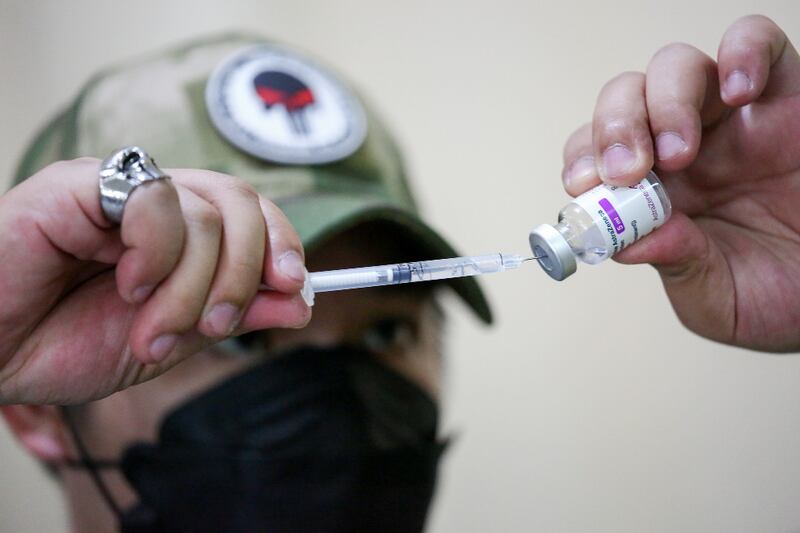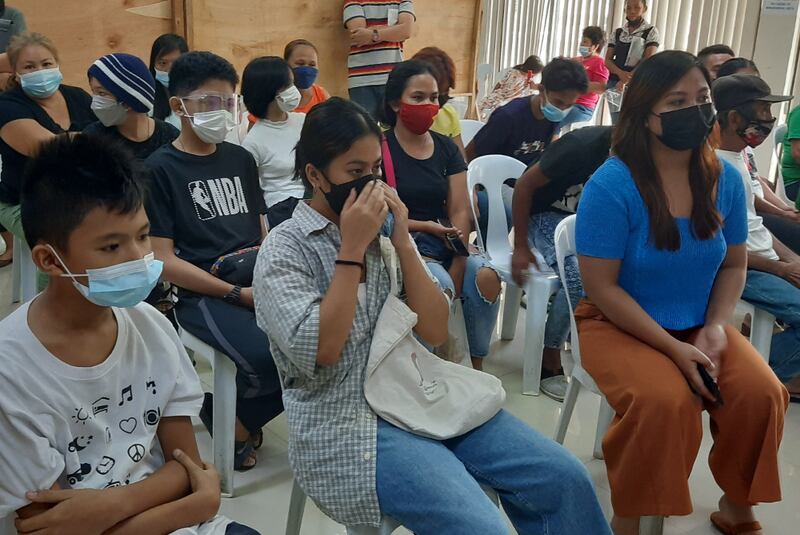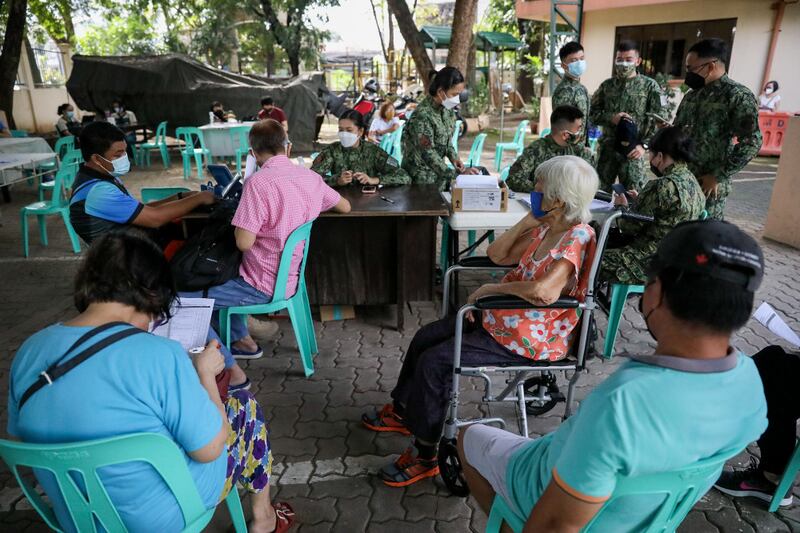The Philippines kicked off a three-day COVID-19 vaccination drive involving thousands of volunteers on Monday to deliver shots to millions of people.
The drive began as the world moved to limit the spread of the newly discovered Omicron variant, which was first detected in southern Africa and has forced countries to close borders once again. While no cases have been recorded in the Philippines so far, according to officials, flights from seven European countries were suspended over the weekend on top of an earlier ban on arrivals from several African nations.
“Today, the entire nation comes together for a massive effort in our national vaccination program against COVID-19 – our three-day National Vaccination Drive,” Philippine President Rodrigo Duterte said at a site east of Manila. The program “aims to vaccinate around 9 million individuals in 8,000 sites across 16 regions nationwide.
“This is our single biggest push to fast-track vaccinations and reach our target of 70 percent population protection nationwide,” Duterte said. “It is very important for us to take a whole-of-nation approach to win against the coronavirus that has sorely plagued our country for almost two years.”
About 36 million of the Philippines’ 110 million people have been fully vaccinated, according to statistics from the health department.

Duterte said he expected 54 million Filipinos – about half of the country’s total population, and which includes about 80 percent of children between the ages of 12 and 17 – to be vaccinated by year’s end. In addition, the government expects to vaccinate about 77 million Filipinos by the first quarter of 2022 and 90 million by the following quarter.
The health department reported that an average of about 1,600 COVID-19 infections have been recorded each day this month, compared with about 18,000 in September. Since the pandemic began, the Philippines has recorded more than 2.3 million infections resulting in more than 48,500 deaths, according to the statistics website Worldometer.
Despite the nationwide effort, many people in southern Lanao del Sur province shied away from getting the shots on Monday. Gov. Mamintal Adiong Jr. said the turnout was low despite assurances by officials that vaccines were safe and needed to prevent the spread of the potentially killer disease.
“Right now many do not want to be vaccinated because of the rumors, fake news they hear about vaccines. They claim that the vaccines kill or cause problems in two years, that is why they are having a hard time convincing the public,” Adiong told reporters.

WHO update
Meanwhile in a statement on Sunday, the World Health Organization (WHO) noted that it was not clear whether the Omicron is more transmissible than the Delta and other COVID-19 variants, or if it causes more severe infections.
“There is currently no information to suggest that symptoms associated with Omicron are different from those from other variants,” the WHO said.
The U.N. agency called on nations to report initial cases or clusters to the WHO and to perform field tests and laboratory assessments “to better understand if Omicron has different transmission or disease characteristics, or impacts effectiveness of vaccines, therapeutics, diagnostics or public health and social measures.”

